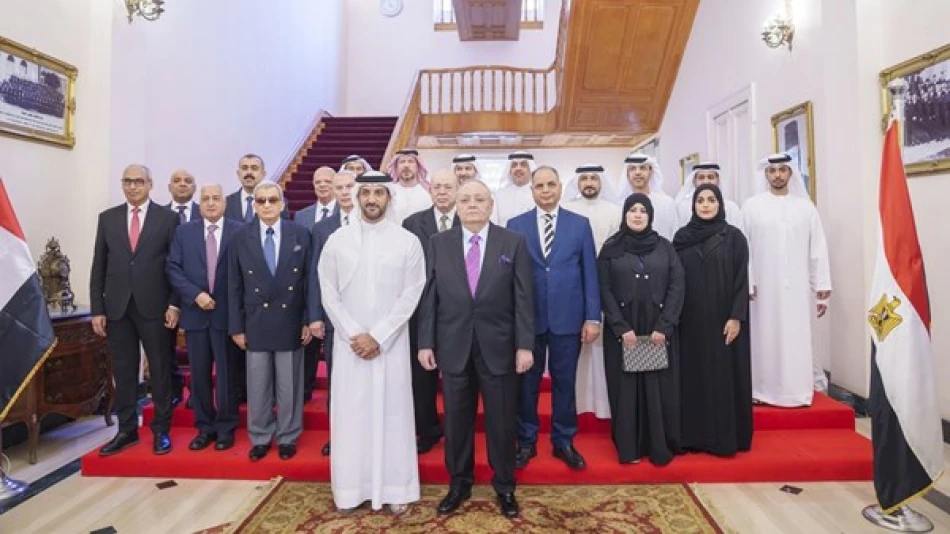
Sharjah Ruler Meets Egyptian Prime Minister to Strengthen Bilateral Ties
UAE-Egypt Judicial Partnership Deepens as Sharjah Seeks to Modernize Legal Framework
The UAE's push to strengthen its judicial systems gained momentum as Sharjah's Deputy Ruler and Chief Justice Sheikh Sultan bin Ahmed Al Qasimi met with Egypt's State Council leadership in Cairo, signaling a strategic move to leverage Egypt's 77-year judicial expertise for institutional development. The high-level diplomatic engagement reflects the UAE's broader ambition to position itself as a regional legal and business hub while tapping into established Arab legal traditions.
Strategic Judicial Diplomacy in Action
During Monday's meeting at the State Council headquarters in Giza's Dokki district, Sheikh Sultan expressed enthusiasm about collaborating with one of the Arab world's most established judicial institutions. The discussions centered on knowledge transfer, talent acquisition, and best practices sharing—critical elements for any jurisdiction seeking to enhance its legal infrastructure.
Egypt's State Council President, Counselor Osama Youssef Shalaby, welcomed the initiative as a reflection of the deep fraternal ties between the two nations, while praising Sharjah's pioneering steps in judicial and legal system development.
Why This Partnership Matters Now
Institutional Learning at Scale
Sheikh Sultan's emphasis on learning from "prestigious judicial institutions" reveals a pragmatic approach to legal system enhancement. Rather than building from scratch, the UAE is strategically leveraging Egypt's extensive experience, particularly valuable given Egypt's State Council's comprehensive structure spanning judicial, advisory, legislative, and administrative functions.
Regional Legal Hub Ambitions
This collaboration aligns with the UAE's broader strategy to become the Middle East's premier business and legal destination. Similar to how Singapore studied various international legal systems before establishing itself as Asia's arbitration center, the UAE appears to be methodically building institutional capacity through strategic partnerships.
Egypt's Judicial Export Potential
The detailed presentation Sheikh Sultan received highlighted Egypt's State Council's four-pillar structure: judicial, advisory, legislative, and secretariat divisions. This institutional model, refined since 1947, offers proven frameworks for administrative dispute resolution, disciplinary proceedings, and contract review—areas crucial for modern business environments.
Egypt's willingness to share this expertise positions the country as a judicial knowledge exporter, potentially creating new diplomatic and economic ties beyond traditional trade relationships.
Market and Investment Implications
For international investors and businesses, stronger judicial cooperation between these nations suggests more harmonized legal frameworks across key Arab markets. This could reduce legal complexity for companies operating regionally, particularly in sectors like finance, real estate, and technology where regulatory clarity drives investment decisions.
The focus on contract review mechanisms and administrative dispute resolution also signals improvements in commercial law enforcement—a critical factor for foreign direct investment flows.
Beyond Symbolism: Practical Outcomes
The exchange of commemorative shields and palace tours might appear ceremonial, but the substantive discussions around talent exchange and legislative cooperation suggest concrete outcomes ahead. The UAE's systematic approach to institutional development, combined with Egypt's deep legal expertise, could produce a model for judicial modernization that other developing nations might emulate.
This partnership represents more than bilateral cooperation—it demonstrates how established legal traditions can be adapted and enhanced to meet contemporary governance challenges in rapidly evolving economies.
Most Viewed News

 Layla Al Mansoori
Layla Al Mansoori






